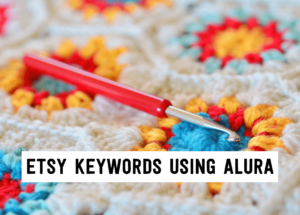
How to find the best Etsy keywords in 3 simple steps using Alura
If you want to be found in search results on Etsy, you need to optimize your product listing for SEO. And if you want to
join
join
Are you toying with the idea of selling your handmade products online?
Perhaps you’re already selling at craft markets but you want to move to selling online . . .
. . . or maybe you are starting a handmade business and want to start selling online straightaway . . .
. . . OR maybe you already sell your handmade products online and you’re looking for even more online selling options!
Regardless, you are wondering what options you can choose from, and which might be the best fit for your handmade business.
Today’s article is about just that— we’re going to look at all sorts of online options for your handmade business, and talk about the differences between them as well.
So, ready? Let’s dive in.
When you are looking to sell your handmade products online, there are different “categories,” so to speak, of online selling options.
None is better than the other, but each one has a different specialty that may or may not fit the best with your handmade business. You need to think about what your goal is, and also what you have time to maintain.
Thinking this through before you choose an online marketplace will save you a ton of headaches down the road!
Now let’s move on and talk about your options.
What I want to do today is give you some examples of each type and explain how they are different from each other. I won’t dive into the tiny details about each one – or this article would be extremely long (!), – but what I want to do is give you the information you need about each kind of marketplace so you can determine which is the best fit for your handmade business.
Let’s start with retail handmade marketplaces, which are marketplaces where you sell directly to customers.
The two major handmade marketplaces are Etsy and Amazon. They obviously have a huge audience – so lots of potential sales here – but they also have a large amount of sellers, so you have a lot more competition.
This is neither good or bad, just something to keep in mind.
If you aren’t as familiar with using Amazon for handmade businesses, I have an article you can watch after this one called Should you be selling your products on Amazon Handmade?.
If you are new to Etsy I have an article for that as well that talks about the pros and cons of having an Etsy shop.
Now if Etsy and Amazon seem to be all everyone is talking about, there are also smaller marketplaces that you can sell your handmade products on.
A few examples of smaller handmade marketplaces are IndieCart and Artfire. Both websites allow makers from anywhere on the globe to sell a wide variety of handmade items.
N.B. Between the time this video was recorded and the time it went out, ArtFire has sadly shut down 😔 you can read more about what happened by clicking here.
Another place you can try is Tedoo. It poses as a social media network to connect crafters, buyers and sellers and you can sell your products there as well. Since at the time of updating this post there aren’t many reviews online (and the ones we have are pretty mixed) make sure to be cautious while using it. Also, check out if the products sold there will align with your brand.
Some online marketplaces are more specific to a country. What this means is that they either only allow handmade artists and artisans from that country to sell their products there or are much more popular in a specific country than in others. Here are a few examples:
If you live in America, one of the top handmade marketplaces is Aftcra, an online marketplace where users can buy and sell handmade American products. Its mission is to support local artisans and artists who live in America. 2024 Update: Sadly, Aftcra closed on March 31st, 2024.
A popular Canadian handmade marketplace is iCraft. iCraft is based in Canada and quite popular there. Although it’s quite popular in Canada, it does accept hand-crafted goods from sellers around the world.
If you live in the UK, take a look at Folksy. Folksy calls itself “the UK’s biggest online craft fair,” and is a marketplace for British artists and handmade craftspeople.
In Australia a very popular option is Madeit. The Madeit marketplace is exclusively for handmade businesses located in Australia and only allows handmade work (no mass-produced items).
Australia’s neighbor, New Zealand, has a handmade marketplace website as well, called Felt, which is an online market for New Zealand artists and craft businesses – it also only allows handmade products.
Now these are great if you sell products that are mostly targeted at customers of a specific country OR if you only want to sell locally/nationally, but if you don’t want to use a country-specific marketplace, another option is to use an online marketplace that is specific to a certain type of goods.

FREE WORKBOOKS, CHEAT SHEETS, AND RESOURCES TO HELP YOU START, GROW AND PROFIT FROM YOUR HANDMADE BUSINESS.
Uncommon Goods, for example, is a marketplace that only carries items that are unique either in their look or their purpose. Artists have to submit the items they would like to sell, Uncommon Goods reviews submissions, and if yours is deemed a good fit for the website you are allowed to sell it there. I personally love this website so if even just to shop around or take a look at what’s there, go check it out… it’s really, really cool.
Society6 is a marketplace for artists and designers. Artists upload their designs which then can be purchased in a variety of formats such as art prints, phone cases, mugs, clothing, and more.
If you are a graphic designer, you’ll want to check out Creativemarket.com to sell your illustrations, patterns, graphic design templates, invitations, fonts or anything in between.
If you design patterns, Ravelry and Craftsy are great options. Ravelry is focused on fiber arts, crocheters and knitters, while Craftsy is for patterns of any kind (in addition to offering how-to classes).
The Little Market is a handmade marketplace for home goods that focuses on nonprofit and fair trade goods, and empowering women artisans.
Ethica focuses on organic and natural beauty products, emphasizing responsible sourcing, sustainable production, and fair labor standards.
And finally,
Ten Thousand Villages focuses specifically on fair trade jewelry and kitchen wares.
I’m sure there are many MANY more, but this gives you an idea of the variety of smaller handmade marketplaces out there to choose from.
Now if you’re interested in selling your shop directly to retailers you could consider using a wholesale handmade marketplace. What that means is you won’t be selling and shipping to the end consumer, but instead you will sell to retailers who will then sell your product on their website or in their store to their customers..
Trada.io is a wholesaler for Australian buyers and sellers, their mission is to help Australian retailers find unique, handmade products to sell in their stores.
Faire is a global online wholesale marketplace where small business owners and handmade sellers can buy and sell wholesale online. Users can search by country to only see companies that ship from that geographical region.
Global Crafts is yet another online wholesaler of handmade products, featuring products from over 20 countries worldwide.
Another great option for selling your handmade products is to create your own website.
First I want to talk about specialty store website builders. These websites help makers and artists, like yourself, build their own website.
A popular one is Indiemade, which enables handmade artists to create an artist website with a store, blog, galleries and more.
Another option is Pattern. Pattern though, and that’s an important point, is linked to Etsy, so you have to have an Etsy shop to be able to use pattern as a website builder. So when you use Pattern you will sell your products both in the Etsy marketplace and also have your own website via the Pattern builder..
Storenvy is both a marketplace and a website builder. They have a marketplace but they also allow you to build your own website separately.
So these website builders are handmade/maker centric, which means they are good at designing websites that work well for handmade businesses that want to sell their products and are generally speaking easy to use even if you don’t have experience building websites at all.
Another option for opening your online shop is using non-handmade specific website builders to create your website. This option gives you a lot more control and is what I usually recommend if you’re going to have your own website— because if you’re going to have your own website there are some big advantages to having complete control over it.
The most popular website builders here are Shopify and WordPress.
If this is an option you’re considering, I have a super helpful article that will tell you How To Get Your Site Set Up where I discuss the 7 Things you need to do when you are setting up your craft website. SO check it out to see what it entails – there is a learning curve but I promise it’s totally doable even if you’re not super tech savvy and having a Shopify or WordPress site has a LOT of advantages and offers the most control.

This free website planner will help you create a simple yet professional one-page website for your handmade shop.
The final marketplace option is social media, and I’m going to be honest—
. . .this is not something I would recommend you do, at least not as your only avenue or as a long term strategy, as it’s not as specialized or as reliable as the other options we’ve talked about today.
I will say, though, that it can be a good way to dip your toe in the water and see if there is interest in the products you want to sell.
The most common options on social media include
What you need to remember about these options is that they are for selling anything and everything so you don’t have an audience of people who specifically want to buy handmade products.
Now using these mediums to direct people to your shop is a whole different ball game – and can be a great marketing strategy – but in this case we’re talking about choosing social media to be your one and only shop, which has a lot of limitations. So selling on social media YES, but as an add-on to a marketplace or separate website store.
Now after hearing all of these options you might be thinking “Deb I can’t believe you didn’t mention this one!”
If you have one you’d love to recommend or are bummed I forgot to mention:
Also, if you’d like me to do a deep dive on a specific platform also let me know in the comments so that I can do it in the future.
And if you’re still debating whether you want to sell your products on a major platform or a smaller one – and this article has left you curious and wanting to learn more about Etsy – be sure to check out my “Pros and cons of Etsy” article next, it will help you think through if Etsy is a good fit for your business and could help increase your sales!
Thank you for reading, and until next time, au revoir!
you might also like…
related articles

If you want to be found in search results on Etsy, you need to optimize your product listing for SEO. And if you want to
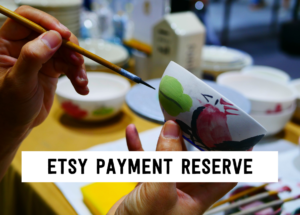
There has been a lot of talk in the Etsy community — and I mean A LOT of talk — about Etsy’s payment account reserve
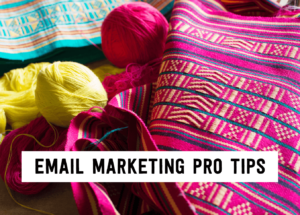
Anyone who knows me knows that I am a HUGE advocate for using email marketing to grow and scale your handmade business. But you may
disclaimer
subscribe to youtube
THE LAUNCHPAD
get in touch
We acknowledge and give thanks to the Budawang and Yuin people, the Traditional Owners of the land we work and live on. We pay our respects to all Aboriginal and Torres Strait Islander Peoples and elders past, present and emerging.
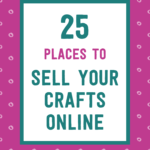
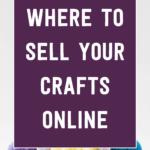

Grab this free
one page website planner

Get Instant Access to
The FULL Resource library
🚀 100% Free of Charge! 🚀
Ready to earn real cash while having fun? Here’s your chance to make money online, and the best part is, it won’t cost you a thing! Just follow these simple steps, and you could be walking away with an iPhone or other amazing prizes! 💸📱
📲 Download the app today from the link below and unlock a world of opportunities. Not only can you earn instant cash, but you can also refer your friends to make even more money!
🔗 Download Link: https://cashjungle.page.link/f8gD
💰 Earn Up to ₹18,375 by Downloading Apps! 💰
It’s as simple as it sounds! By downloading and using apps, you can earn up to ₹18,375. Whether you are a gamer, survey taker, or someone who loves completing small tasks, there’s something for everyone. From playing games 🎮 to filling out surveys 📋 and downloading apps 📱, you can easily start making money in no time.
🔥 Instant Cash Withdrawal! 🔥
This isn’t some fake get-rich-quick scheme! You can withdraw your earnings instantly to your account via UPI, ensuring a quick and seamless experience. No delays, no hassle – just straightforward cash in your pocket. 💸💳
🌟 Earn by Referring Friends! 🌟
Share the app with your friends and get a chance to win amazing prizes! You can even earn a 50% commission for life on the earnings of your referrals! The more you refer, the more you earn! It’s that simple! 🔥
🎁 Prizes Include:
Apple iPhone 15 (128 GB) 📱
Apple iPad 10.9-inch (Wi-Fi, 64 GB) 📱
Apple AirPods (2nd Gen) 🎧
Amazon GTS 4 Mini Smart Watch ⌚
Sony Wireless Headphones 🎶
Mi 10,000mAh Power Bank 🔋
SanDisk 128 GB Pen Drive 💾
The more referrals you bring in, the higher your chances of winning premium Apple gadgets and more! 🎉
🎯 Leaderboard Rewards! 🎯
Compete with other users and climb up the leaderboard to earn even more rewards! The top performers will be rewarded with extra bonuses, so keep playing, sharing, and winning! 🏆
🏆 It’s Time to Get Started! 🏆
Don’t miss out on this golden opportunity. Download the app now and start earning! Whether it’s for a new iPhone, extra cash, or just for fun – there’s something here for everyone.
🔗 Download Now: https://cashjungle.page.link/f8gD
🔑 Key Highlights:
100% Free to Join 💸
Earn ₹18,375 by downloading apps 📲
Instant cash withdrawal via UPI 💳
Win Apple gadgets & more 🎁
50% commission for life on referrals 🔥
Leaderboard prizes for top earners 🏅
#EarnMoney #CashJungle #FreeMoney #ReferralBonus #ApplePrizes #InstantCash #PlayAndEarn #MakeMoneyOnline #UpiWithdrawals #CashRewards #LeaderboardChallenge
This is your chance to turn your free time into something profitable. So, what are you waiting for? Start downloading and referring today!